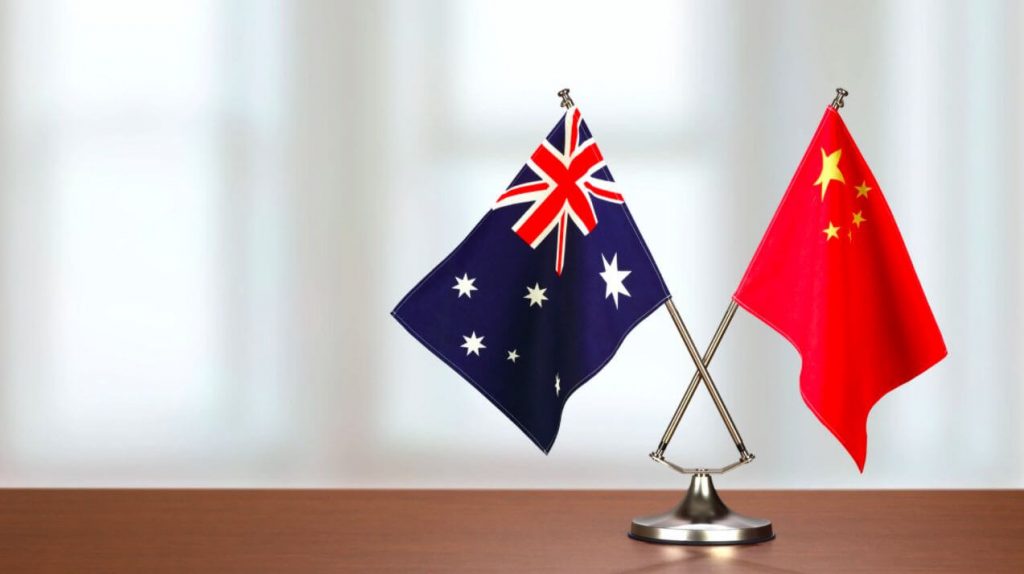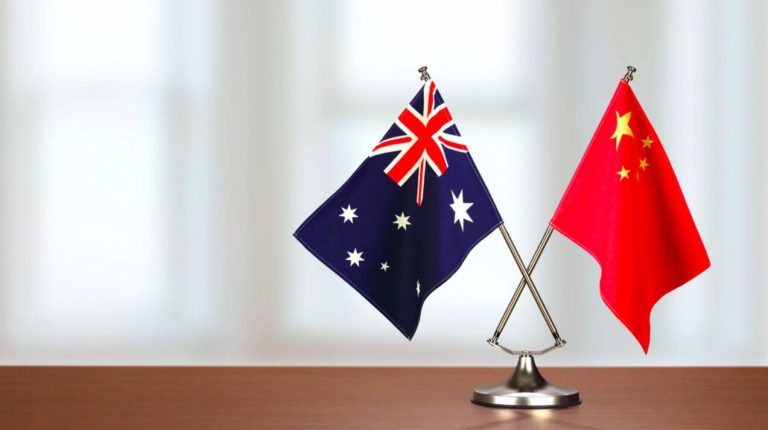
A former ambassador to Beijing recently described Australia-China relations as having moved from the bottom of a pit to a “sub-basement” of the pit. There is blame on both sides but, former intelligence office, David Ambrose argues that Australia’s conduct over 2020 amounts to self-harm
The tragedy of the collapse of Australia’s good bilateral relations with China, is our failure to recognize our willful infliction of self-harm.
Prime Minister Scott Morrison’s routine response to each and every new problem is his mantra of standing up to bullies and always making decisions based on Australian values and in the national interest.
It is difficult to understand how decisions to alienate our biggest trade partner and decimate our export earnings can possibly be in Australia’s national interest.
And, as for bullies, Dave Sands and Jimmy Carruthers were both gifted boxers but no trainer would have put them in the ring with Joe Louis or Rocky Marciano.
The COVID-19 investigation
Last week it was announced that a team of World Health Organization (WHO) investigators will arrive in Wuhan in January to begin investigating the coronavirus outbreak.
In Australia’s early call for an international, independent investigation into the origins and handling of the COVID-19 outbreak in Wuhan, the language was shrill, intemperate and implicitly accusatory.
The Morrison government announcement did not come through any multilateral mechanisms or consultation. It was an ‘announcement’ on the ABC Insiders program by his foreign minister Marise Payne. Followed closely by the prime minister, whose proclamation came after a phone call with, now defeated, US President Donald Trump.
It offended Beijing, itself in the midst of a struggle to manage and contain the virus, at the worst possible time, Chinese New Year, a time at which there are more than a billion people movements!
Only weeks later, at the WHO Assembly 73, both Australia and China signed the resolution, unanimously adopted, calling for “an impartial, independent and comprehensive evaluation” of the origins and handling of the Covid-19 outbreak of the virus in Wuhan. What had changed? Only the language, to the language of international diplomacy.
Once partners
Australia, and especially Western Australia, played an extremely important role in the emergence of China from the 40 years of China’s autarchic economic policy of “self-reliance” and its progress in the implementation of its Four Modernizations through the policy of Opening to the Outside World.
Fundamental to that change was a decision in 1986-87 to source strategic raw materials from abroad. It was a decision made at the highest political levels of the Chinese Party and State as it represented a decision to rely on the supply of essential raw materials, on purely rational economic grounds, to fuel the rapid development of the industry fundamental to its Four Modernizations, Iron and Steel. And it chose Australia for that trust.
The commercial terms for the development of the Channar Iron ore mine in WA’s Pilbara region, between Hamersley Iron and CMIEC, required very high-level political approval.
That trust in Australia was vindicated and, many years later, was rewarded when Australia was awarded the first contract for the long-term supply of LNG. Australia was not the most competitive supplier but had proved itself trustworthy.
Ironically, having collaborated in the modernizing of China’s economy, we are now contributing, through China’s loss of trust in us, to its reversion to a form of self-reliance in its “Dual Circulation Strategy”. Such retraction can only be to our loss.
What we seem not to understand, despite repeated Chinese statements, is its demand for “respect” as a necessary basis for reciprocal and productive cooperation. What does that mean?
Obviously, it means accepting China for what it is, a State in the international system, as legitimate as any other, with its own system of government and power structures, the People’s Republic of China.
The State with which Australia established diplomatic relations in 1972, with which we developed the closest and most productive bilateral relationship over 40 years. Not the aggressive Communist ogre we have come to represent it as more recently.
It was Communist throughout but that was not an ideological impediment to mutual respect and mutually beneficial cooperation.
China’s failure to respond to individual phone-calls from Australian Ministers wishing to discuss bilateral trade problems is represented in our media as unreasonable and discourteous and China’s obdurate fault.
As the list of China’s “grievances” makes unmistakably clear, the individual difficulties are all subordinate to the “political” problem at the heart of the relationship “respect”.
By David Ambrose, APAC News




















